Are pregnant women with mental health problems being let down?
- Published
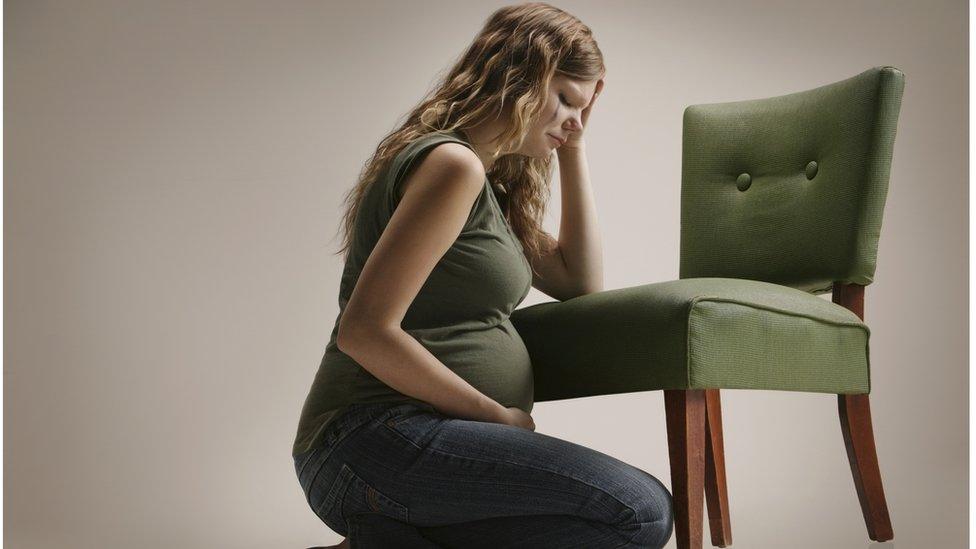
Women with serious psychiatric disorders during pregnancy are at an increased risk of suicide
The family of Charlotte Bevan, whose body was found in the Avon Gorge with her four-day old daughter, has called for a dedicated service which looks after women with serious mental health problems before, during and after childbirth.
Having a baby is a joyous occasion for most women - but for one in 10, pregnancy and the period following childbirth can be anything but rosy.
Depression, anxiety and stress can be the overriding feelings they experience and, if left untreated, the risk increases that they develop into serious psychiatric disorders, such as schizophrenia, psychoses and eating disorders.
The mental health of this group of women during pregnancy and after birth - whether the illness already existed beforehand or developed for the first time - has been of particular concern to mental health professionals for some time.
Psychiatric disorders are the cause of 7% of all maternal deaths during pregnancy and the six months after the birth.
So why are there still women falling through the net?
Costing lives
Guidelines from NICE, external, the health watchdog, say women at risk of mental health problems should receive extra support at all stages of pregnancy, be provided with a care plan for their treatment and be offered advice on the safest and most appropriate drugs to take during pregnancy and breastfeeding.
Research suggests providing this level of care will improve not only the long-term well-being of the mother but protect the child's emotional and physical development too.
But the Maternal Mental Health Alliance (MMHA), which represents more than 70 organisations committed to improving the mental health of mothers and their infants, says this isn't happening in many areas of the country.
Dr Alain Gregoire, consultant and honorary senior lecturer in perinatal psychiatry, and chair of the MMHA, says this failure is costing lives.
Suicide is an increased risk for women with serious perinatal psychiatric disorders, he says.
And then there's the cost to society, he points out, of £8bn a year in lost earnings and NHS care.
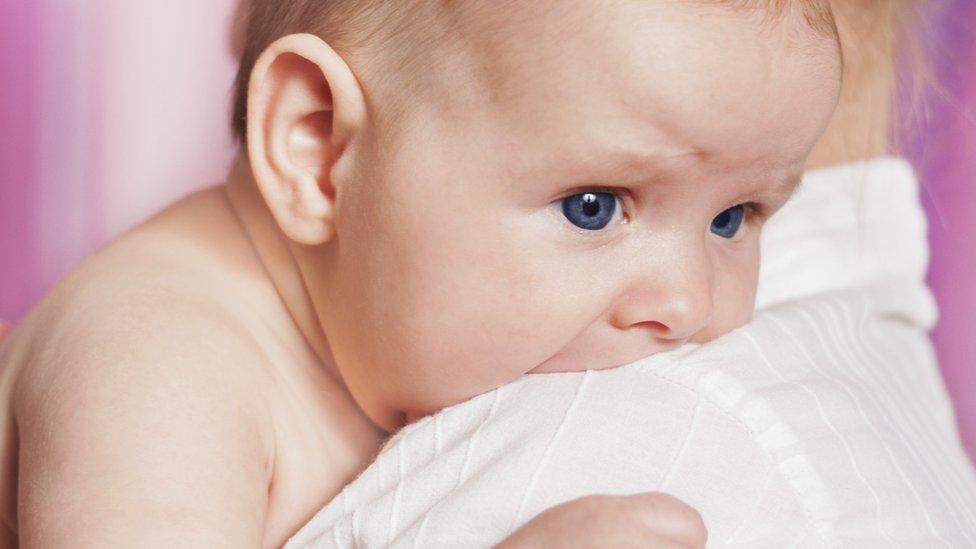
Support for pregnant women at risk of depression can improve the emotional wellbeing of the baby as well as the mother
He says: "It's a very critical time in women's lives and it's important to get it right."
The inquest heard that Ms Bevan stopped taking her anti-psychotic medication some time before the birth of her daughter because she wanted to breastfeed.
Dr Gregoire says decisions like this should be part of a care plan agreed in advance and need not be a major issue, he adds.
"There are many medication options available with no evidence of risk to the baby, whereas there is clear evidence that women being unwell is not good for mother or baby."
Stopping medication suddenly is never advised and can be avoided because there are always other effective treatment options, he says.
'No-one asked'
Rachael Jones felt no connection with her pregnancy and no happiness at the thought of son's arrival five years ago.
She had always wanted children but she didn't tell anyone how she was feeling because she didn't understand the feelings herself.
"No-one asked me how I was feeling. There wasn't an opportunity to talk about it, no invitation to chat about it from anyone I saw."
It was only after the birth that Rachael admitted to a health visitor that she felt detached, lonely and depressed. She had experienced suicidal thoughts too.
During a 12-month wait for talking therapy on the NHS, she relied on family and friends to help her get through each day with postnatal depression.
And, in the meantime, she set up a charity dedicated to pre and postnatal depression advice and support, called the PANDAS Foundation.
She says the Charlotte Bevan inquest demonstrates how important it is for pregnant women to be able to talk about their mental health.
Rachael wants communication between health professionals to improve so that women like her are properly supported during pregnancy.
She also believes doctors and midwives need a better understanding of mental health so that they can ask the right questions and offer support at the right times.
Patchy service
If or when a pregnant woman's mental health deteriorates, the guidelines state that all women with a child under a year old should be offered a place in one of the 17 specialist psychiatric care mother and baby units in the UK.
But a map, external of these dedicated mother and baby units, with an average of eight beds per unit, show that some areas such as the south, south-west and east of England, and Wales, are noticeably underserved.
Another map, external of specialist community perinatal mental health teams across the UK shows there is a very patchy service, with most areas having an extremely basic level of provision, or none at all.
However, Alistair Burt, Minister of State for Community and Social Care, said perinatal mental health was a strong priority for the government and it was investing £75m over the next five years "to help drive improvements".
"Since 2010 the number of in-patient mother and baby units which specialise in caring for women during the perinatal period has almost doubled and we have trained more than 600 perinatal mental health visitor champions."
The Royal College of Midwives has said that more midwives with specialist training in mental health are needed to work with at-risk women.
But this relies on GPs, midwives and health visitors recognising that their patients are suffering in the first place.
Spectrum of suffering
NHS England estimates that around 3% of women who give birth each year will be referred to psychiatric services and 1% will need specialised care in a mother and baby unit.
That's 6,700 women with serious mental illnesses who need specialist help.
They are at one end of a wide spectrum of mental illnesses which can affect pregnant women - ranging from mild to severe.
Rachael did not take any medication for her condition. All she wanted was to speak to someone else who felt the way she did, so she could feel normal.
Instead, she suffered in silence.
- Published7 October 2015
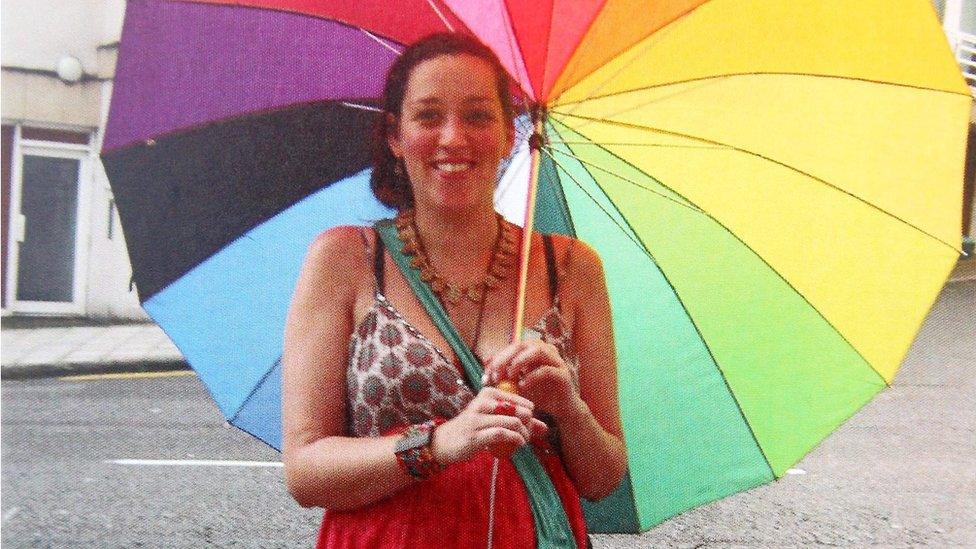
- Published17 December 2014
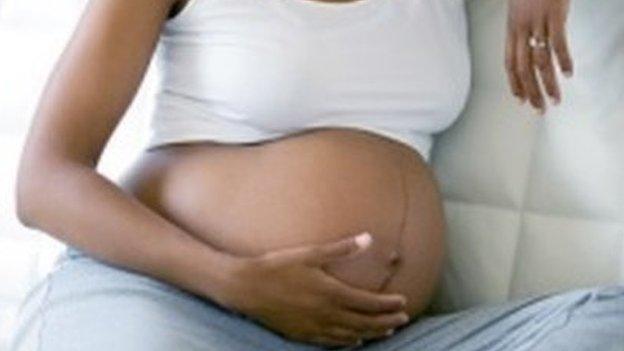
- Published20 October 2014
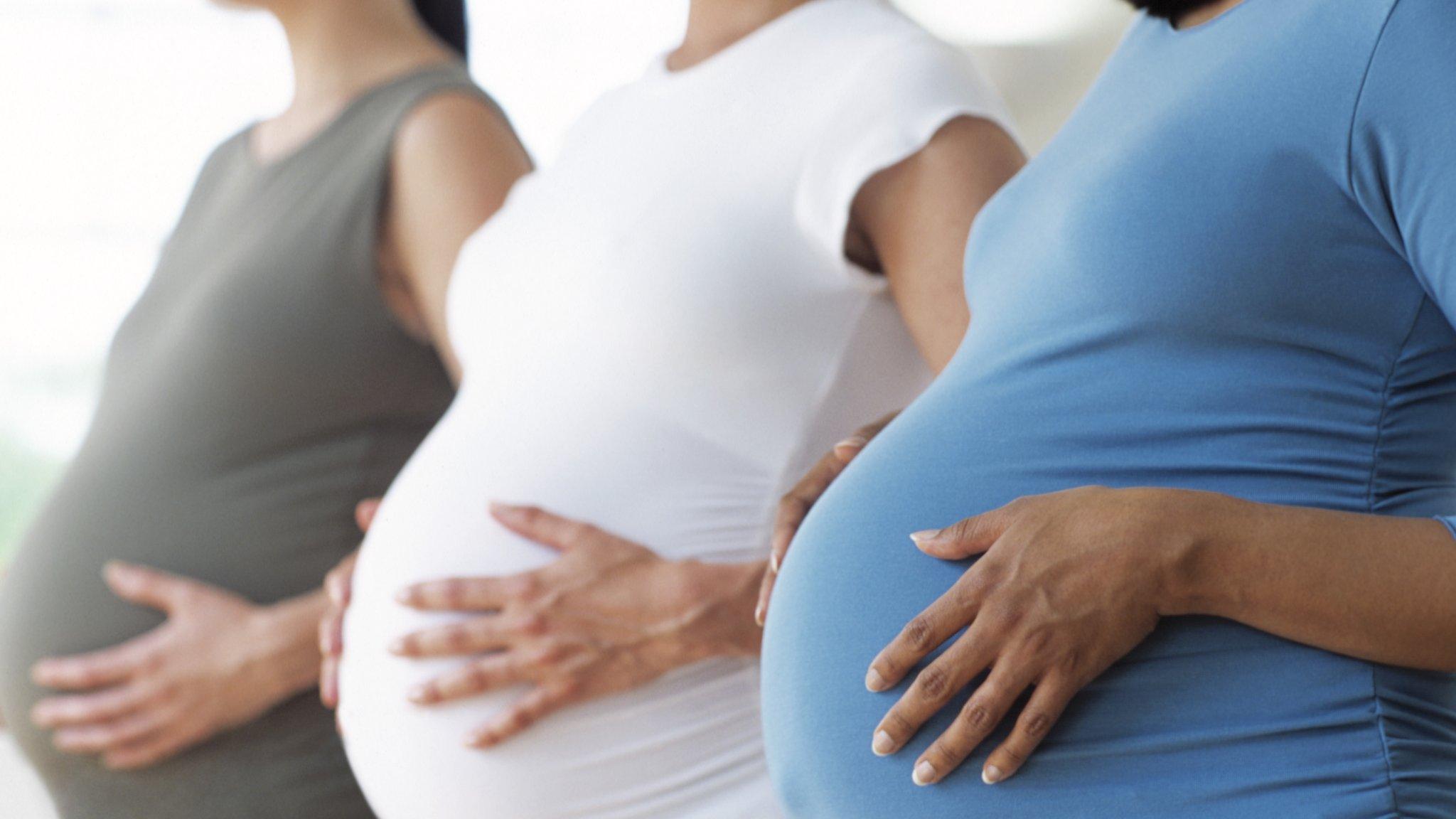
- Published6 July 2014
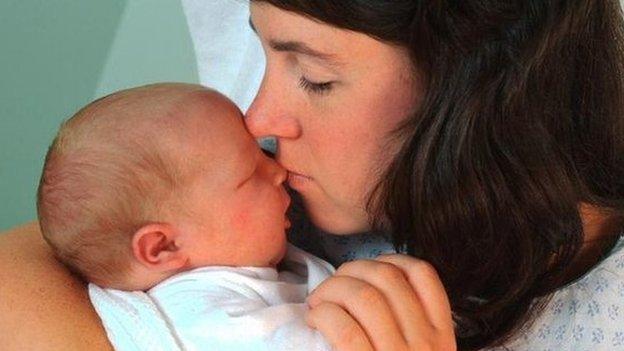
- Published17 August 2010